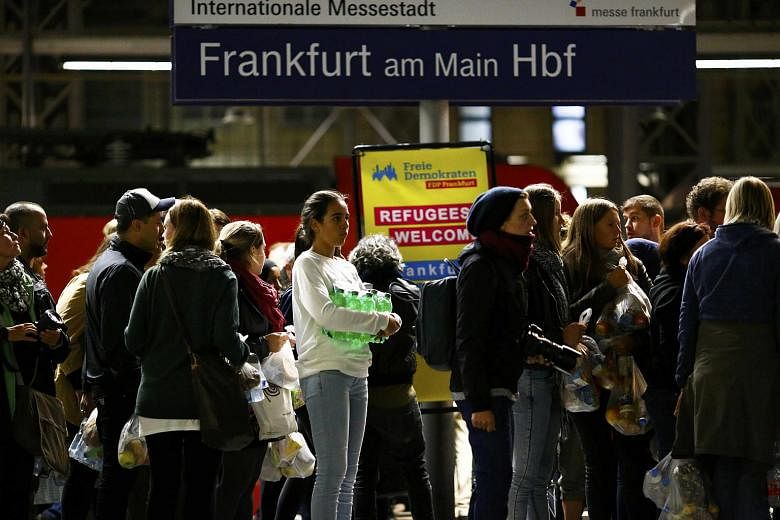BEIRUT • Searching for a new home, Mr Yassir Batal says Germany and its unfamiliar voices and customs are more enticing to his wife and five children than the wealthy Arab states whose culture, religion and language they share. Like so many other Syrians who have escaped civil war, the 36-year-old has ruled out heading south through Jordan to Saudi Arabia or beyond. They would not be welcomed the same way, he said.
"In Europe, I can get treatment for my polio, educate my children, have shelter and live an honourable life," said Mr Batal, as he left a United Nations office in Beirut, the city that has been the crossroads for more than a million refugees since the violence started in March 2011.
Stories of fellow refugees suffocating in trucks or small children drowning in the Mediterranean Sea are doing little to tarnish the allure of Europe and the struggle to get there.
As countries argue over how to cope with the scale of the tide of humanity, safer routes to the Gulf states remain blocked because of the difficulties in gaining entry and concern over how migrants would be treated there. Most of the migrants fleeing the war are Sunni Muslim, like most Gulf citizens.
"I'm most indignant over the Arab countries which are rolling in money and which take only very few refugees," Danish Finance Minister Claus Hjort Frederiksen said in an interview last week at his office in Copenhagen. "Countries like Saudi Arabia. It's completely scandalous."
Gulf nations have long been wary of opening their doors to refugees, said Mr Michael Stephens, a Middle East research fellow at the Royal United Services Institute for Defence and Security Studies. In Qatar or the United Arab Emirates, where native populations are the minority, even 30,000 could change the demographic balance.
"The Gulf states have always been very worried about security threats from Syrian refugees," he said. But demographic and social pressures are not "enough of a reason" to decline accepting refugees, he said.
The Gulf absorbed Palestinian refugees in the past, particularly the UAE and Saudi Arabia.
Mr Hussien is one of them. He grew up in a camp in Syria before moving to Dubai to work as a cashier. He thought he would live in the UAE for a few years, save money and return to Syria, but then the war took hold.
"We have to help one another as Arab countries, and they have money and space to contain it," said Mr Hussien, 30, who declined to give his last name because of concern that he might anger the authorities.
BLOOMBERG

